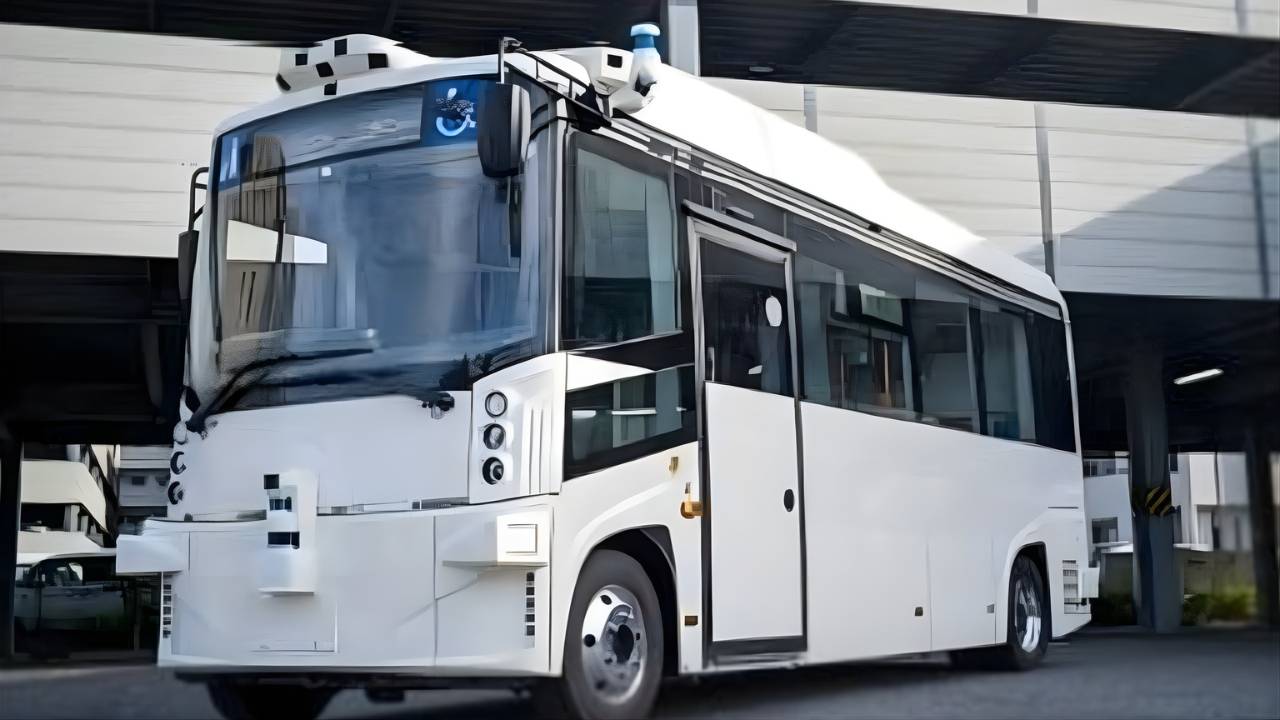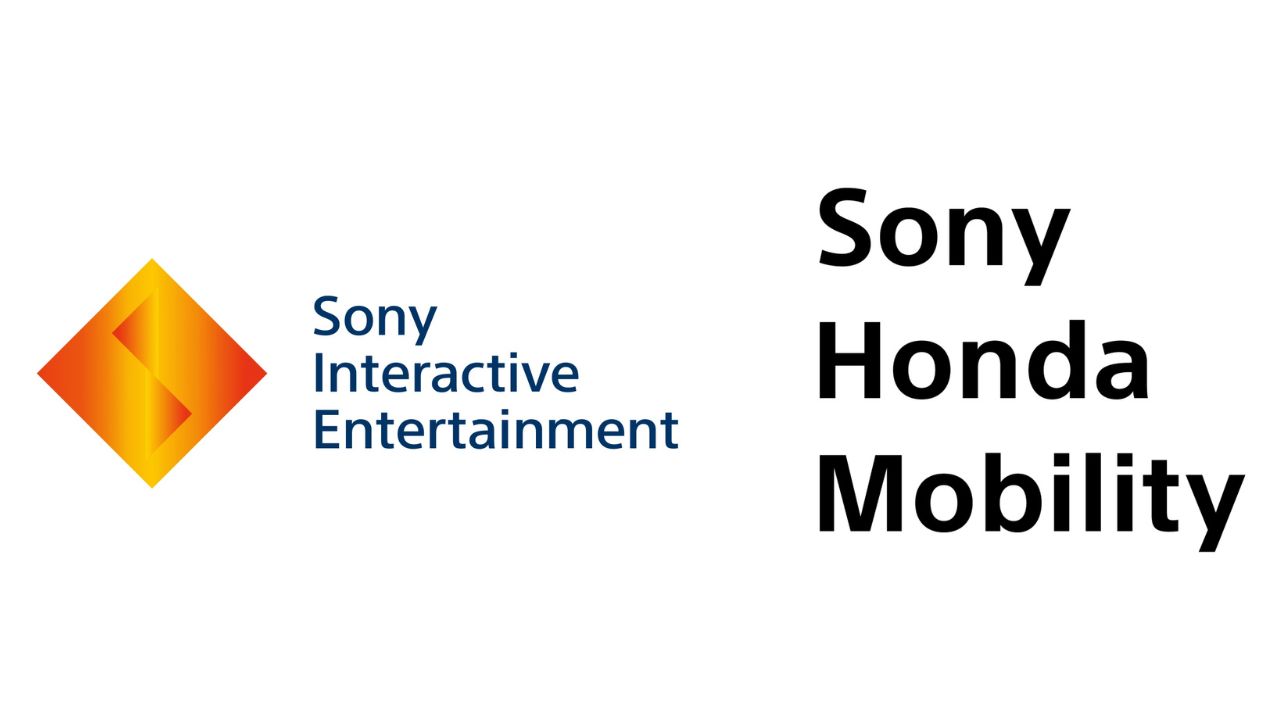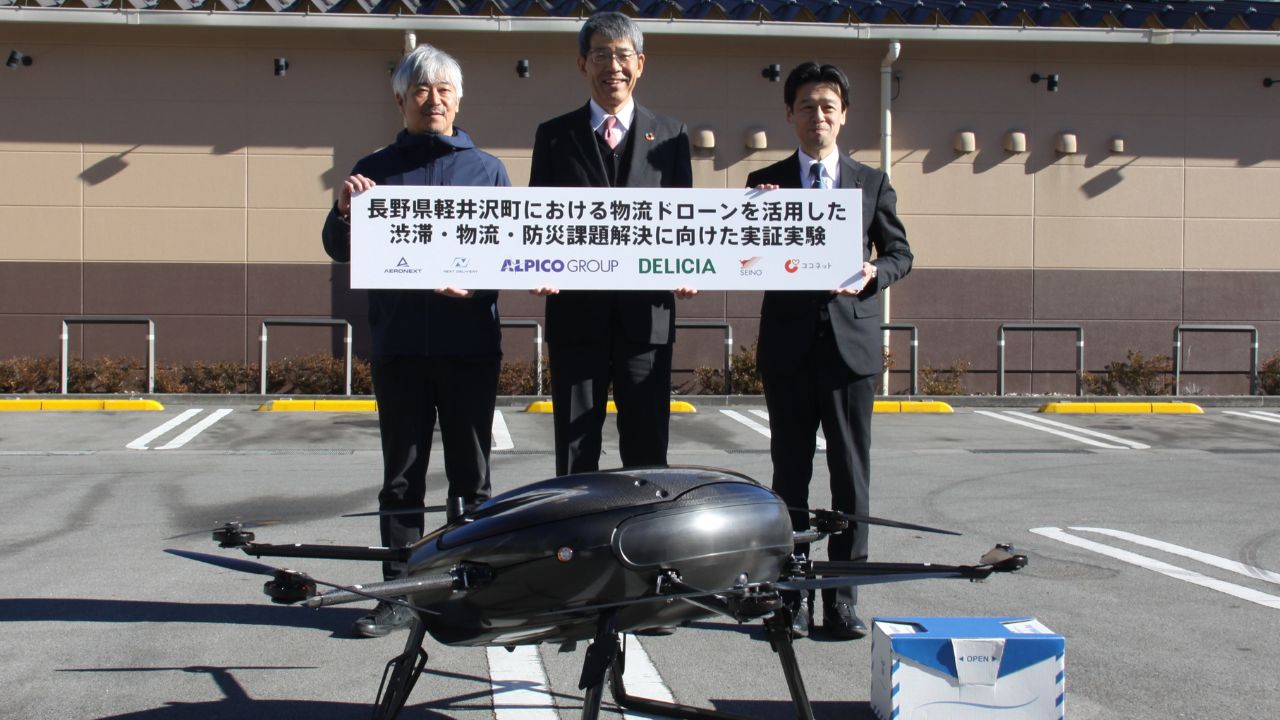ドローン・ロボティクス業界にいち早く参入して活躍するプレイヤーの方々のキャリアに焦点を当て、その人となりや価値観などを紹介する連載コラム[空150mまでのキャリア~ロボティクスの先人達に訊く]第18回は、ACSLの米国子会社ACSL, Inc.社長(President)のCynthia Huang氏に取材した。
- Advertisement -
Cynthia氏は、DJIで事業開発責任者、Auterionで事業開発担当役員を務めたのち、2023年1月にACSLに参画した。いわば、米国最大手で米国市場を作りこんできた張本人である。現在はACSLにて米国における小型空撮ドローンSOTENの事業開発を精力的に進めている。今回はCynthia氏に、ACSLに参画した理由や、米国での事業の進捗やこれからについて、幅広く聞いた。
「さまざまな顧客の要望に真摯に応えていきたい」
――最初に、DJIでのキャリアについて教えてください。
Cynthia氏:DJIには2018年、北米の事業開発責任者として参画しました。当時は、DJIがコンシューマーから企業向けにフォーカスし始めた時期で、私の役割は、販売戦略とパートナー、マーケティング、ソリューション・エンジニアリングの統括でした。DJIで過ごした3年間で、企業におけるドローン活用の爆発的な成長を目の当たりにしました。
- Advertisement -
I joined DJI in 2018 as the director of Enterprise in North America, when DJI began to focus more supporting enterprise drone usage in the US. I was in charge of oversighting Strategic Sales and Partners, Marketing, and Solution Engineering. I was there for three years and really go to see the explosive growth of enterprise drone usage for DJI.
その大きな転換点は、COVID-19です。それまでもアメリカでは、エネルギー業界の施設検査など、企業におけるドローン活用は進められていましたが、COVID-19によってソーシャルディスタンスが求められ、大勢の人と一緒にいられなくなったことを受けて、ドローンを飛ばす遠隔地からの検査は、あっという間により広く受け入れられるようになったのです。
Dynamic change came during the COVID-19. Such applications like energy inspections were already used at that time, but COVID-19 unlocked much of other applications for drones as people were not physically allowed to be at physical sites.
ただ私は、米国のドローン産業が、1つのメーカーに依存するべきではなく、それは逆に危険であると確信していました。DJIは圧倒的なシェアを誇る会社ですが、それでも実際には、多種多様な要望や幅広いユースケースの全てに応えることは難しかったのです。そこで私は、Auterionへと移りました。Auterionは、オープンソースドローンのエコシステム企業であり、Auterionに参画することでより多くのソリューションを市場に提供したいと考えていました。
It was certain to me that the US drone enterprise industry could not rely on only one manufacturer, and that it would be very dangerous to do so. DJI is a global company with dominant market share, but even so it was still difficult to meet all the varying needs and applications. That is why I left to Auterion. Auterion is an open-source drone ecosystem company, and I thought it will enable me to bring broader solutions to the market.
- Advertisement -
――当時は具体的に、どんなユースケースに対応できていないと感じたのでしょうか?
Cynthia氏:自動航行やオンボードコンピューティングといった機能、アドバンストセンサー、ドローンポートなど、これらは産業が進化し続けるためには必ず求められるものですが、当時のDJIではあまり優先度が高くなく、開発が十分に進められていませんでした。例えば、ドローンを飛ばして大量のデータを取得することについても、現在のDJIは確実にフォーカスしていますが、当時はよりスマートなドローンの開発に注力する、優先的に最適化するといったことが十分ではなかったです。
Autonomous capabilities or certain onboard compute capabilities, advanced sensors, drone in a box docking solution are essential for the industry to continue evolving, however, development priorities for DJI were not high back then. For instance, you can fly a lot of drones and you can gather a lot of data, but DJI drones did not focus on or optimize back in 2020. They’ve abviously done these things definitely now, but DJI wasn’t prioritizing in making a more intelligent drones at that time.

――では、AuterionからACSLに移るときは、どのようなことを感じていましたか?
Cynthia氏:Auterionでは、DJIのときとはまた別の、一連の課題があることが分かりました。市場のより多くの要求に応えるためには、大量生産と規模拡大が必要ですが、価格、製品の品質、品質安定性などの全てにおいて、DJIのような企業はいないというか、Auterionでは、大量生産するためのリソースにアクセスできなかったのです。とはいえ、オープンソースドローンのエコシステムが、このグローバルな産業で問題を解決する重要なパートだということは、今でも強く思っていることです。
I found a different set of challenges at Auterion. In order to meet more of the demands in the market, mass production and scaling up are necessary, but there is no company like DJI in prices, product quality, and consistency of quality. Auterion did not have access to mass production capabilities. However I do want to say that I still believe open source drone ecosystem is an important part to solve challenges in the industry.
"米国企業向け市場8割"小型空撮機に対する、ACSLの魅力
――ACSLに参画したときの話題に移りましょう。
Cynthia氏:まず、昨今の企業向けドローンの状況を理解するには、小型空撮ドローンの競合は僅か数社しかないという事実を知る必要があります。そして、小型空撮ドローンはとても重要です。なぜなら、ドローンを業務活用している、フォーチュン100に名を連ねるような大企業が保有する機種の大半が、小型空撮ドローンだからです。たとえば、大手エネルギー関連企業がドローンを100台保有しているならば、8割が蒼天のような小型サイズのカテゴリーの機種です。残り2割がおそらく、もっと大型で重いペイロードを搭載するような、異なるサイズのドローンになるでしょう。ですから、小型空撮ドローンのマーケットにおいて、DJIの代替となる機種を提供することはとても重要です。地政学的な観点に限らず、より多くの選択肢があるからこそ、より多くのイノベーションが生まれ、業界の健全化にもつながるということは、誰もが認めるところでしょう。私がACSLへの参画で追求した理由はここにあります。
First of all, if you understand the enterprise drone landscape today, there are only few competitors working on a small drone. And small drones are very important because small drones are what make up the majority of large fleets that enterprise costomers like fortune 100 companies have. If a large utility company has a hundred drones, 80 percent of those drones are going to be a small drone size category like SOTEN, and the remaining 20 are going to be of a different size category with heavier payload. Thus, it is important that we offer alternatives to DJI to the market in the small drone category. Regardless of geopolitics in the US, everyone can agree that more choices and more alternatives lead to more innovation and a healthier industry. That is why I joined ACSL.

――ACSLのどういうところに、魅力を感じましたか?
Cynthia氏:ACSLは、そういったことに対応できる唯一の会社だと考えました。競合他社と比べても、製造能力を持っていることは非常に大きなアドバンテージになりますし、また労働力や従業員に国籍の多様性があること、企業向け市場における製品・サービスの提供をグローバル規模で捉えているビジョン、もちろん日本発の企業であるという点も米国市場では極めて魅力的に映るだろうと考えました。
ACSL is the only companies that advanced small drones so that it can be of service to the enterprise drone market. ACSL has mass manufacturing capabilities which is a huge advantage compared competitors, and the global diversity of its employees , the vision to serve the enterprise market on a global scale, and of course the Japanese roots are extremely attractive.
また、DJIはコンシューマー向けからスタートしていますが、ACSLが純粋にB2Bビジネスに特化してきたところも気に入っています。企業がどのように問題に取り組み、顧客からのフィードバックにいかに応えていくかにおいて、もともとB2Bを志向してきた企業であるという点は非常に重要なポイントになりますし、顧客が抱える課題に対する真摯な姿勢はACSLが米国で成功を収めるための鍵になる、と私は考えています。そして顧客は、私たちと接するなかで、ACSLがいかに彼らのワークフローを気にかけ、自社技術をもって彼らを成功に導く支援をできるよう、いかに熟慮しているかを理解してくださると思います。
DJI started as a consumer company, but what I like about ACSL is that we are purely focused on enterprise. I think that is very important things to consider when you look at how a company will deal with the problem and how a company will respond to feedback from customers. I think that one of the most promising strength of ACSL is how seriously we take customer issues. When we interact with costomers, they will understand that we care deeply about their workflows, and we care deeply about helping them to succeed with our technology.
ですので、ACSLへの参画という個人的な決断は、実はそれほど難しくありませんでした。企業向けドローンの市場で最大限のインパクトを与えたいなら、1つめには、B2B志向であること、2つめには、小型空撮ドローンという市場の8割を占める主要な領域への製品を開発する能力を持つ企業と、一緒に仕事をする必要があると考えていたので、ACSLへの参画は自明の決断だったといえます。加えて、電子機器やロボットの開発や製造における日本の文化は、私自身はもちろん、顧客の間でも非常に高く評価されています。これから日本がドローン業界におけるリーダーとしての地位を確立していく、一翼を担えることをとても嬉しく思っています。
So, in terms of my personal decision to join ACSL, it was actually not very difficult to make. If I want to have the maximum impact on the enterprise drone market, I need to work with a company that, one, has an enterprise mindset, and two, can develop products that address the majority of the market. This made my decision very obvious. In addition, the Japanese culture of making electronics and robotics is very well received by our customers, so I’m happy to be able to play a part and bring Japanese company to established itself as a leader in the drone industry.
米国での事業の進捗と体制
――シンシアさんがACSLに参画してから約1年半が経ちました。手はじめに行ったことは。
Cynthia氏:ACSLは、DJIやAuterion、Skydio、あるいは他のアメリカのメーカーと比べても、まだ4名体制というとても小さな組織なので、私がDJI時代から築いてきた関係や人脈を非常に活用しました。全米でも主要なパートナーと、直接的な関係や信頼関係を構築することで、市場参入のチャンネルを迅速に開拓し、米国内の多くの代理店の販売・サポートの力を活用できます。すべてが私一人あるいは私のチームにかかっているのではなく、代理店ネットワークにかかっているということです。すでに国内でドローンを販売しているネットワークを活用できることは、私たちの強みだと思っています。
ACSL is a very small company compared to DJI, Auterion, Skydio, and other manufactures in the US, so I was able to leverage the relationship and connections that I carry over from my time at DJI. Being able to directly establish relationships and trust with key partners across the nation allows us to quickly develop a go-to-market channel and leverage the sales and support capabilities of many dealers nationwide. Not everything depends on just me or just my team, it depends on a network of dealers. I think that our advantage is that we are able to use the network that has been already selling drones.

――販売台数や顧客数などを可能な範囲で教えていただけますか。
Cynthia氏:2023年は、50台のドローンを販売しました。2024年は今のところ代理店は9社あり、100台を販売する計画です。下期ではさらにもう数百台の販売を、そして2025年にはより飛躍的な伸びを見込んでいます。顧客数については、顧客と代理店のプライバシーがあるので、はっきりとは分かりませんが、少なくともアメリカ最大級のいくつかのエネルギー関連の企業で私たちのドローン、蒼天が使われているということはお話しできます。私たちはあらゆるユースケースに対応する意向がありますが、現段階では米国チームのリソースが限られているため、ユーティリティ企業やエネルギー企業との取り組みに軸足を置いています。
In 2023, we sold 50 drones. In 2024 so far, the plan right now is another hundred drones, and we have forecasted another few hundred to the rest of this year. In 2025, we forecast more dramaticaly. I don’t have the exact number of customers due to privacy agreements between customers and dealers, but I can share that some of the largest energy companies in the US are using our drones, SOTEN. We are open to various use cases, but with our limited resources in the US team right now, we are focusing more on working with utility companies and energy companies.
――代理店マネジメントや、顧客との関係構築で大切にしていることは。
Cynthia氏:初期段階では、私たちのブランドに初めて接する際の代理店の市場参入体験や顧客体験を緻密に管理できる能力のある会社に絞ってお付き合いしています。実際、毎日多くの代理店から、私たちの代理店になりたいというお問合せも数多く受けていますが、現段階では、申し訳ないのですがお断りしています。私はDJI時代には常に50社の代理店と付き合いがありましたので、その中からどの代理店が、米国におけるACSLのストーリーをきちんと伝え、良い評判を獲得してくれるかを考えて、厳選しているということです。
In the beginning, we are very careful to closely control dealers’ go-to-market experience and the customer experience when interacting with our brand in the US. Actually, we have many dealers asking us every day if they can become our dealer, but we have to say ‘sorry, not yet’ because we want to do things very carefully.
I worked with maybe 50 different dealers during my days at DJI, so I know which ones will help us tell the right story and bring a good reputation to ACSL in the US.
顧客との関係では、営業マンや代理店を通じてコミュニケーションを取ることもありますが、ほとんどの場合は、私たち自身が実際に顧客と一緒にデモフライトを行い、彼らが働いている場所で積極的に関わっています。ですから、私たちをとても身近に感じてくれています。例えば、屋外のとても暑くて汗だくの中で虫と戦いながら、ヘルメット、安全ベスト、鉄芯入り安全靴を装着して、多くの日々を過ごしています。ACSLに参画してから少なくとも20回は屋外デモに出かけていますし、DJIの頃から含めると何百回も行っていると思います。この日焼けした肌を見ればわかるでしょう(笑)。ですから顧客にも、私たちが非常に真剣であり、彼らと密に協働したいという意向であると、しっかり伝わっています。
Sometimes we communicate with salespeople or dealers, but most of the time, we actually go out and fly drones with the end customers ourselves, engaging with them at their workplaces. This approach helps them feel very close to us. For instance, I have spent many days in very hot and sweaty days outside with bugs, wearing a helmet, safety vest, and steel-toe boots. I’ve spent at least 20 trips out in the field with ACSL, and hundreds more during my time at DJI and now. If you look at the damage from my sunburned skin, you’ll understand. So they know that we ae very genuine and wanting to work closely with them.
1年半で感じた「2つの大きな変化」と、これからについて
――入社後1年半の間で、何か米国市場における大きな変化は感じましたか?
Cynthia氏:最も重大な変化は、地政学をめぐるものです。この状況は、いまもなお米中間でエスカレートし続けており、ドローンへの注目もその議論の一部となっています。もう1つの大きな変化は、これは私たちの誰も予想していなかったことですが、顧客との対話が増えるにつれて、私たちにフィードバックすることや、ただDJIのドローンを置き換えるだけではなくACSLと協働することについて、顧客の期待が高まってきていることです。
The most critical changes are around the geopolitics. The situation has continued to escalate between US and China, and the focus on drones has been a part of that discussion. The other big change, which we did not expected, is that as we talk more with customers, they expect to give us feedback not only to replace DJI drones but also to work with ACSL.
彼らは、ACSLに対してフィードバックするとACSLの反応がとてもよいので、将来的に新しいアプリケーションやソリューションを一緒に開発していけるのではないか、と期待してくれています。私たちも、ロードマップ作成においては、彼らから得たフィードバックを考慮に入れています。このため、彼らはドローン活用のワークフローを次世代へと進化させるべく、私たちと協働していきたいと考えているのです。
They see that they can develop future applications and future solutions with us, because we are very responsive to their feedback. We take into consideration their feedback when we design our roadmap, so they can expect to work with us to evolve the next generations of workflows on drones.

――米国の今後の市場の広がりについて、どのような可能性を感じていますか?
Cynthia氏:私たちは現在でも、ドローンが社会に何を提供できるのか、ドローンが複数の重要なインフラ分野に対して何をサポートできるのか、そして他の新興ロボティクス分野がメインストリームになっていくための重要な学びやフレームワークをドローン技術がどのように提供できるのかについても、まだ表面的にしか見ていないといえます。
I believe even up until today, we are still just scratching the surface of what drones can provide to our society, what drones can support across multiple critical infrastructure segments, and how drone technology can also provide important learnings and frameworks to allow for other emerging robotics sectors to become mainstream too.
ACSLがこれまで米国市場で経験してきた勢いそして成功は、まだ表面をなぞったに過ぎません。1年前、米国でACSLを知る人はほとんどいませんでした。しかし今日では、私たちは業界全体で知られていますし、これからも、私たちがどれだけ顧客を大切にし、彼らのフィードバックに応えているかを示し続けることによって、ブランドへの親しみはさらに強くなり、信頼と信用も強固になっていくでしょう。製品が改善され続け、顧客と協力して彼らのワークフローにおいてSOTENがどのような競争優位性を持つかを示し続けることで、私たちは、より多くの顧客を開拓してサービスをさらに提供するための可能性を、大きく広げることができるでしょう。
The momentum and success that ACSL has experienced in the US market so far is also just scratching the surface. A year ago, almost no one in the US knew of ACSL. Today, we are well recognized across the industry and that brand familiarity will continue to become stronger as a result of trust and credibility as we continue to show customers how much we care and respond to their feedback. As our product continues to improve, and as we continue to work with customers to show how SOTEN has a competitive advantage in their workflows, we have enormous potential to continue to expand and serve more customers.
――最後に、個人的な質問となってしまいますが、シンシアさんは小さなお子さんを育てながら仕事にも精力的に取り組んでいらっしゃいます。仕事と家庭の両方で成功するために、気をつけていることがあれば教えてください。
Cynthia氏:私は母親で、6歳と3歳の子供がいます。彼らはとてもエネルギッシュで、本当に本当に元気いっぱいです。ですので、「どうやって仕事と家庭を両立させていますか?」と聞かれることがよくあるのですが、わが家では毎日、何時になったら起きて、何時になったら学校に行って、何時になったら寝るという「定刻になったら何をするか」という厳格なルールを定めていて、「ママがハッピーでいるためには、子どもは決められた時間を守って、家族の一員として動かなければならない」と、ちゃんと理解してくれています。家族全員がスケジュールを守れば、全てのタスクをこなす時間が十分にあるのです。
I am a mother with a six-year-old and a three-year-old, and they are very high energy. Very, very high energy. So, I often get asked how I manage to balance work and family life. Our family life has very strict boundaries in place to ensure that expectations are clear every day. My kids understand that if they want a happy mother, we all need to follow a schedule and be organized,and that they need to go to sleep at a certain time and go to school at a certain time. As long as everyone follows the schedule, there is enough time to get everything done.
だから、仕事のときは仕事に100パーセント集中し、子どもたちと遊んでいるときは彼らに100パーセント向き合うようにしています。また、1日の中でマルチタスクが許される時間がある日もあって、例えば夫が運転しているときに車の中で子供たちが遊んだり叫んでいるなかで、仕事のメールをチェックしたり返信することはよくありますし、メールのキャッチアップは夕方や週末にしています。
When I’m working, I’m 100 percent focused on work, and when I’m with my kids, I’m 100 percent focused on them. There are also times during the day when multitasking is okay. For instance, I often check work emails while we are in the car and my husband is driving, even if the kids are playing and talking loudly in the back seat. I catch up on emails in the evenings or on weekends.
そう、だから「約束事を守っていれば、子供たちともっと時間を過ごせないことに罪悪感を感じる必要もなく、仕事の時間が足りないことにストレスを感じる必要もないんだ」って思っています。家庭も仕事も明確にスケジュール化されていることで、両立はうまくいくのです。私の子供たちはとても自立しており、自分たちで遊ぶことができるので、それも助かっていますし、非常に協力的な夫がいることも大きな助けになっています。そしてまた、私は自身の仕事もドローン業界も心から楽しんでいます。だからこそ、私は自然体のままで、人生のさまざまなことを両立させつつ、子どもたちに「あなたたちのお母さんは、楽しく母業をやりながら刺激的な仕事もできているよ」と示すことができるのです。
Yes, I think as long as there are clear expectations, there’s no need to feel guilty if I don’t spend more time with my kids, and there’s no need to stress out about not having enough time for work. As long as everything is scheduled and blocked out clearly, it all works out. My kids are quite independent and can play by themselves, and I have a very supportive husband, which really helps. I also truly enjoy my job and the drone industry, so it feels natural to balance different aspects of my life and show my kids that I can be their fun mom and also do exciting work!














